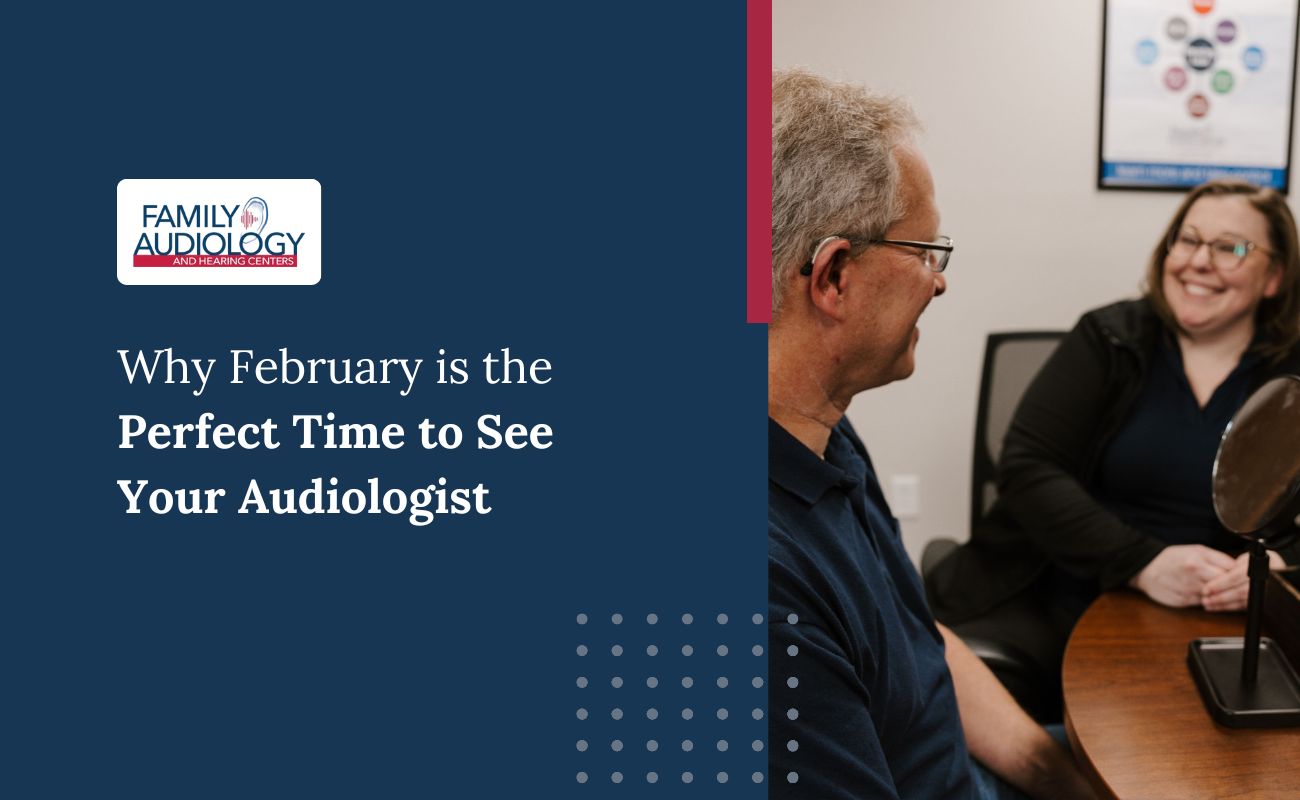The Link Between Untreated Hearing Loss and Cognitive Decline



Hearing loss affects more than your ability to follow conversations or enjoy music. Research now shows a troubling connection between untreated hearing loss and cognitive decline, including increased dementia risk. This relationship matters for your long-term brain health and quality of life.
What makes this connection particularly significant is how quickly these changes can occur. Some studies indicate that cognitive decline associated with hearing loss can begin within just a few years of untreated hearing problems. Your brain literally starts rewiring itself to compensate for missing auditory information, which can impact memory formation, attention span, and processing speed. This neuroplasticity, while remarkable, comes at a cost to other cognitive functions.
The economic impact of this connection extends far beyond individual health concerns. Healthcare costs related to untreated hearing loss and subsequent cognitive decline reach billions of dollars annually. People with both hearing loss and cognitive impairment require more medical interventions, experience higher rates of hospitalization, and often need earlier assisted living arrangements. Understanding and addressing this link early can help prevent these cascading health and financial consequences for individuals and families.
The Brain-Hearing Connection
When you have hearing loss, your brain compensates by working harder to process incomplete sound information. This extra effort creates mental fatigue and may accelerate cognitive decline over time. Your auditory system and brain collaborate in complex ways—when this partnership breaks down, the consequences extend far beyond hearing difficulties.
Studies reveal that adults with untreated hearing loss face significantly higher dementia risk than those with normal hearing. The numbers are stark: mild hearing loss doubles your risk, moderate loss triples it, and severe loss increases risk fivefold.
How Your Brain Adapts to Hearing Loss
Sound processing involves converting sound waves into electrical signals that travel to various brain regions. When hearing loss disrupts this process, your brain redirects resources from other cognitive functions to help with hearing tasks.
You might notice this cognitive overload as exhaustion after social events or difficulty tracking conversations in restaurants. These aren't just minor inconveniences—they signal that your brain is struggling to compensate for reduced auditory input.
Brain imaging studies show that untreated hearing loss can cause atrophy in areas responsible for processing sound and speech. These same regions handle memory and cognitive processing, explaining why hearing problems often lead to thinking difficulties.
Middle Age Matters Too
Many people assume cognitive decline from hearing loss only affects seniors, but research tells a different story. Adults in their 40s, 50s, and 60s can experience these effects as hearing changes begin. Noise exposure, genetics, and medical conditions contribute to hearing loss at younger ages, yet many people postpone treatment.
The encouraging news? Addressing hearing loss early helps protect cognitive function. Properly programmed hearing aids reduce your brain's workload, potentially slowing cognitive decline and maintaining mental sharpness.
Social Withdrawal Compounds the Problem
Untreated hearing loss often triggers social isolation, creating additional cognitive risks. When conversations become difficult, people naturally avoid social situations, stop participating in group activities, or feel embarrassed about communication struggles. This withdrawal contributes to depression, anxiety, and faster cognitive decline.
Your brain needs social interaction and mental stimulation to stay healthy. Regular conversations and community activities maintain cognitive flexibility and memory function. When hearing loss interferes with these connections, it creates a downward spiral affecting overall brain health.
The workplace presents particular challenges for people with untreated hearing loss. Missing important information during meetings, struggling to participate in team discussions, or avoiding networking opportunities can impact career advancement and job satisfaction. Many professionals report feeling excluded from informal conversations that build workplace relationships and provide career opportunities. This professional isolation adds stress and can accelerate the decision to retire early, removing another layer of cognitive stimulation and social connection.
Family relationships also suffer when hearing loss goes untreated. Grandparents may miss precious conversations with grandchildren, spouses might feel frustrated by repeated communication breakdowns, and family gatherings can become sources of stress rather than joy. Children and grandchildren often interpret lack of response as disinterest rather than hearing difficulty, leading to emotional distance. These strained family dynamics create additional stress and reduce the meaningful social interactions that help maintain cognitive health throughout life.
Professional Care Makes the Difference
Comprehensive hearing evaluation and treatment can interrupt the cycle between hearing loss and cognitive decline. We conduct thorough assessments that identify your specific type and degree of hearing loss, which guides effective treatment planning.
Today's hearing technology goes well beyond simple amplification. Advanced devices like the Phonak Infinio, Oticon Intent, Starkey Edge AI, and ReSound Vivia use artificial intelligence and sophisticated processing to help your brain interpret sound more naturally. These innovations reduce the cognitive effort required for hearing, preserving mental resources for other important tasks.
We use Real Ear Measurements during fitting to ensure your hearing aids are programmed precisely for your unique hearing loss and ear shape. This accuracy maximizes cognitive benefits by delivering the clearest possible sound signal to your brain.
Timing Your Treatment
When you seek treatment, it appears crucial for cognitive protection. Research suggests earlier intervention provides better outcomes for maintaining cognitive function. People who wait years to address hearing loss may miss opportunities for maximum protective benefits.
Most individuals delay treatment for about seven years after first noticing hearing difficulties. During this time, their brain adapts to reduced sound input, and cognitive changes may already begin. Seeking evaluation and treatment sooner gives you the best chance to preserve both hearing and cognitive health.
Comprehensive Support
Effective hearing care extends beyond fitting hearing aids. Regular follow-up appointments allow us to adjust your devices as needs change and maximize your benefit from hearing technology. We also teach communication strategies that reduce listening effort in challenging environments.
These techniques, combined with properly fitted hearing aids, significantly decrease the cognitive burden of hearing loss. Our approach addresses both the technical and practical aspects of hearing rehabilitation.
Your Protective Strategy
The relationship between untreated hearing loss and cognitive decline presents both risks and opportunities. While gradual hearing changes may go unnoticed until they significantly impact daily life, addressing these changes may help preserve cognitive function and life quality.
Regular hearing evaluations detect changes before they become obvious to you. Annual or bi-annual testing enables early intervention, potentially providing the greatest cognitive benefits. These assessments also identify other ear health issues that could affect your hearing or general health.
Taking the Next Step
If you've noticed hearing changes—difficulty following conversations, frequently asking for repetition, or feeling drained after social interactions—these signs warrant professional evaluation. Don't assume these experiences are normal parts of aging or temporary issues that will resolve on their own.
At Family Audiology and Hearing Centers, our audiologists provide comprehensive evaluations and personalized treatment solutions that support both hearing and cognitive health. We help you understand your hearing status and explore options for staying mentally sharp and socially connected. Schedule your hearing evaluation today and take an important step toward protecting your cognitive future.
Discover the Latest Articles
Stay informed with our informative articles.

Why February is the Perfect Time to See Your Audiologist
.jpg)
What Your Audiologist Checks During a Comprehensive Hearing Evaluation

How AI Technology Is Transforming Hearing Aid Performance
Contact your local Hearing Aid Specialists
At Family Audiology and Hearing Centers, we strive to be there for all your family’s hearing needs. Because of this, we have 17 convenient locations in Ohio and Wisconsin for you to visit. See which location is best for you and schedule an appointment today.


